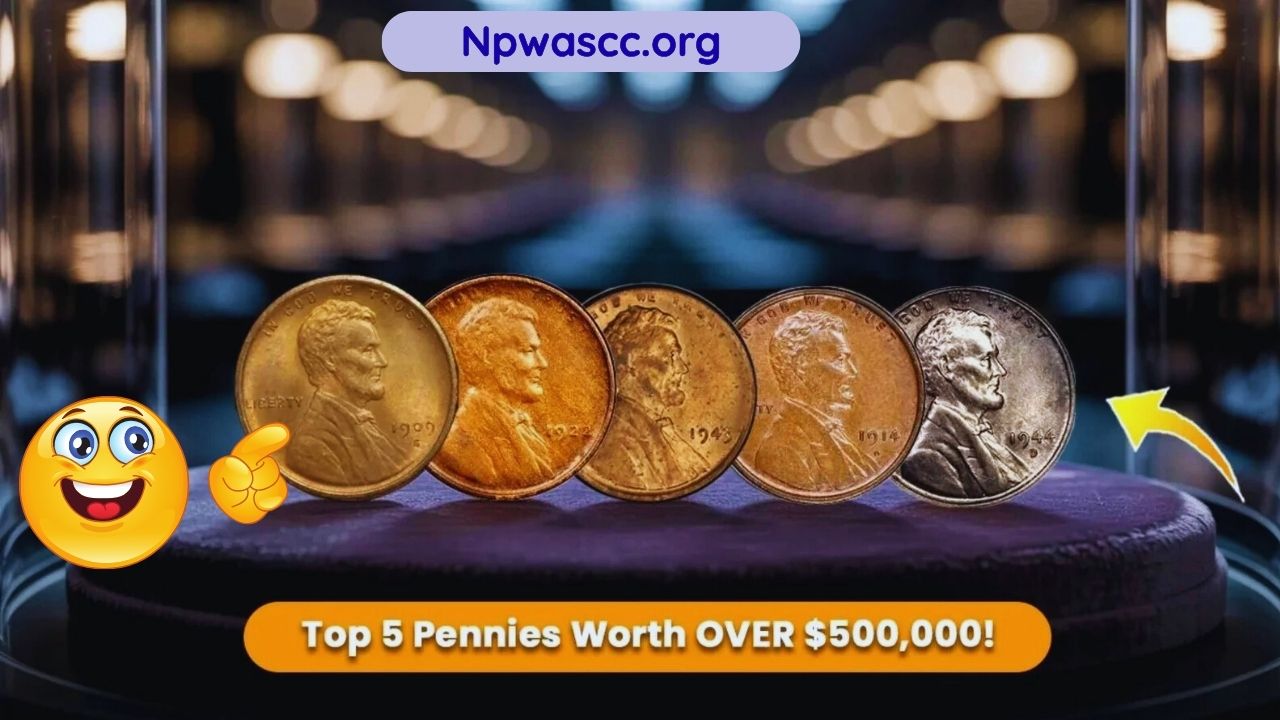Could a penny in your change jar be worth more than your car — or even your house? For coin collectors, the answer is yes. Some Lincoln Wheat Pennies have sold for over $3 million combined, and they might still be hiding in everyday circulation.
The Hidden Fortune in a Penny
Minted from 1909 to 1958, the Lincoln Wheat Penny is one of the most collected U.S. coins. While most are only worth face value, a few rare varieties — thanks to minting errors, unusual materials, or extremely low mintages — have become million-dollar treasures.
A Quick History of the Lincoln Wheat Penny
Introduced in 1909 to celebrate the 100th anniversary of Abraham Lincoln’s birth, the Wheat Penny replaced the Indian Head cent. Designed by Victor David Brenner, it featured Lincoln’s portrait on the front and two wheat stalks on the reverse.
For more background, see the U.S. Mint’s official history. While the design remained the same for decades, certain rare versions now command extraordinary prices.
Why Some Wheat Pennies Are Worth Millions
The value of any coin depends on scarcity, demand, and condition. Factors that make these pennies valuable include:
- Minting mistakes or rare compositions
- Extremely low production runs
- Historical context (like wartime production changes)
When these factors combine, collectors are willing to pay huge sums at auction.
5 Lincoln Wheat Pennies Worth Over $3 Million
| Year & Variety | Reason for Rarity | Estimated Value |
|---|---|---|
| 1943 Copper Penny | Struck on copper during steel penny production | $1.9M |
| 1944 Steel Penny | Made with leftover steel planchets | $1.1M |
| 1922 No D Mint Mark | Weakly struck die missing mint mark | $85,000+ |
| 1909-S VDB | Low mintage with designer initials | $50,000+ |
| 1914-D Wheat Penny | Very low Denver mint production | $40,000+ |
The 1943 Copper Penny – The Million-Dollar Icon
In World War II, copper was reserved for ammunition. Most 1943 pennies were steel, but a few were accidentally struck on leftover copper blanks. With only about 20 known examples, one sold for $1.9 million.
The 1944 Steel Penny – A Wartime Rarity
After 1943, production returned to copper. However, a few 1944 pennies were mistakenly made from leftover steel planchets. These ultra-rare coins have fetched $1.1 million at auction.
How to Tell If You Have One
| Test | What to Check | Why It Matters |
|---|---|---|
| Date | Look for 1943 copper or 1944 steel | Identifies rare years |
| Magnet Test | Copper is non-magnetic; steel sticks | Quick material check |
| Weight | Copper ~3.11g, Steel ~2.7g | Confirms metal composition |
| Professional Grading | Use PCGS or NGC | Boosts authenticity and value |
Notable Facts for Collectors
- Fewer than 20 authentic 1943 copper pennies are confirmed.
- Even a worn example can be worth tens of thousands.
- Many “rare” pennies online are fakes — authentication is essential.
Expert Tips for Finding and Selling Rare Pennies
- Never clean a coin — it lowers value permanently.
- Store coins in dry, protective holders.
- Learn to spot counterfeits before buying.
- Watch recent auction results to track market trends.
- Source coins from estate sales, flea markets, and inherited collections.
FAQ
Q: Can a damaged rare penny still be valuable?
Yes. Authentic rare pennies, even in poor condition, can sell for thousands.
Q: How do I sell one?
Get it professionally graded, then work with reputable dealers or major auction houses.
Final Thoughts
The Lincoln Wheat Penny is more than spare change — it’s a piece of American history and, for a lucky few, a life-changing find. With over $3 million in combined value among the rarest varieties, your next big payday could be sitting in your pocket right now.



